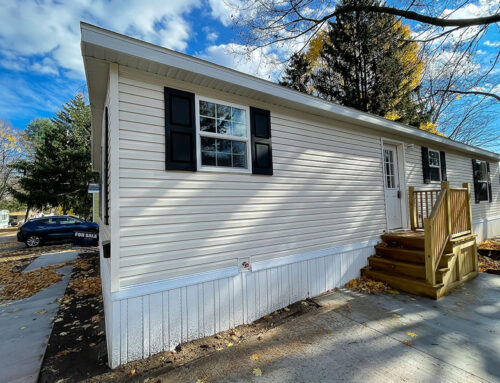What happens to the identity of a blue-collar city when it sees its main industry dry up and wither away? It simply creates a new one. Such is the case with Pittsburgh, Pennsylvania. Our Steel City reputation and economy took a big hit in the 70s and 80s when demand for the metal disappeared in the wake of the oil embargo and escalating inflation. Undaunted, it took us a couple decades to reinvent our city. However, the city has become one of the blossoming tech hubs in the United States.
Turnaround stories catch my eye as a real estate investor who pursues house flipping in Pennsylvania, especially in Pittsburgh. I’ve witnessed the downside—the job loss, the population contractions, and the general misery that US Steel’s shuttering cast over the city. Now I’m seeing a sea change. Pittsburgh is frequently named as one of the most affordable cities to live or retire in. This newfound publicity has breathed life back into the city and created a great market for buying and selling homes. The City of Champions is back in the swing and fortunately, I never lost faith in the ‘Burgh.
Inherent Risks of House Flipping, Even in Pittsburgh
Even when times are as good as they are in Pittsburgh right now, real estate investing is risky, but house flipping can be a good business if you fully understand the process before digging in. I had some trying times when it came to assessing how much money it would cost to renovate properties in Mount Washington and then have sufficient margin to sell at a profit after. That’s not always a simple undertaking because a lot can go awry during the repair phase if you haven’t calculated the costs correctly. It’s easy to look at the potential of some of Pittsburgh’s 18th-century red brick houses or Victorian-era dollhouses—and completely forget to account for the need to replace old wiring and mitigate lead paint.
I’ve sold Pittsburgh investment houses at a loss before and there’s nothing worse than expending considerable energy and effort only to come away empty, having to write a check out of my own funds to cover the deficit. Miscalculating the value of a property at the point of sale or after the renovations have been made can put a huge dent in ROI. It’s important to heed the pitfalls as well as the perks of flipping homes.
Why You Should Be Flipping Pittsburgh Houses
As my real estate investing career has progressed, I’ve sunk much of my effort into buying, rehabbing, and selling homes around Pittsburgh. The challenge is finding great neighborhoods to purchase distressed homes in and accurately forecasting just how much money it takes to repair the dwellings so I can see good returns at the sale. Indulge me while I share three of the main benefits of real estate investing in Pittsburgh, Pennsylvania.
Low Startup Costs
A minimum out-of-pocket expense is one of the main advantages of investing in markets such as Pittsburgh. When I started flipping homes, I tested my mettle by building my portfolio one property at a time. North Side and Squirrel Hill homes in need of some TLC marked my first foray into this market. I didn’t need to dip into my personal assets too much to invest back then and you shouldn’t now either. While home prices are on the rise, it’s a mild-mannered trend compared to the costs of other tech-hub cities drawing Millennials to jobs at places like Google, Amazon, and Apple. The key is to find distressed homes for sale in up-and-coming Pittsburgh neighborhoods close to downtown where the younger generation wants to live and work.
Availability of Distressed Homes
You might be tempted to look at auctions since banked-owned homes are increasing again this year, right alongside house prices. But, the real investment opportunities can be found when houses are in the pre-foreclosure phase, and there is a steady local inventory for that. Why wrangle with all the red tape and unknowns of buying a house from an auction when you can deal with the homeowner directly—before the house sits vacant and in disrepair? If you buy from a distressed homeowner, you can still pay a price that leaves room for reasonable returns and your rehab costs are more likely to be known before you even make an offer.
More Certainty Than Landlording
Buy-and-holds require weathering market fluctuations, which we are seeing in the Pittsburgh market right now. In many areas, especially East End neighborhoods like Bakery Square and Lawrenceville where luxury housing has been on the rise, it’s less expensive for residents to own than to rent. This has led to a glut of rental vacancies there. And, we’re likely to see the same downtown where developers are busy adding about 1,000 new units.
With my renovation projects in Greenfield and Shadyside aimed for quick sale, however, I don’t have to worry that my cap rate will nosedive like in these areas. Because of the shorter time horizon needed for flipping houses, I can be more certain about what my returns will be on the backside of the deal. Then, I can put those returns to work again on the next rehab project.
Seeing the Future of Investing in Pittsburgh, PA
If anything can be learned from Pittsburgh’s plight, it’s learning how to adapt after a knockdown. There will probably be times in your house-flipping career when you might question your choices and decision-making. That reaction is natural and conquerable. In my case, I became a HomeVestors® franchisee to increase my access to some of the best tools and resources for boosting my house-flipping business.
These days, I don’t worry about taking a hit because I wasn’t prepared for both the risks and rewards of being a professional real estate investor in our ever-changing city. The widely-known “We Buy Ugly Houses®” advertising campaign brings me enough qualified leads on distressed houses to grow my real estate investment business as fast as I aim to. And HomeVestors®’ proprietary software, ValueChek™, helps me to analyze a project based on local material and labor costs then estimate my potential ROI in relation to neighborhood comps. So, I can make an offer on an opportunity fast—and with confidence.
If you are ready to make your real estate investment business a turnaround story too, contact HomeVestors® today.
Each franchise office is independently owned and operated.
Contact
"*" indicates required fields





